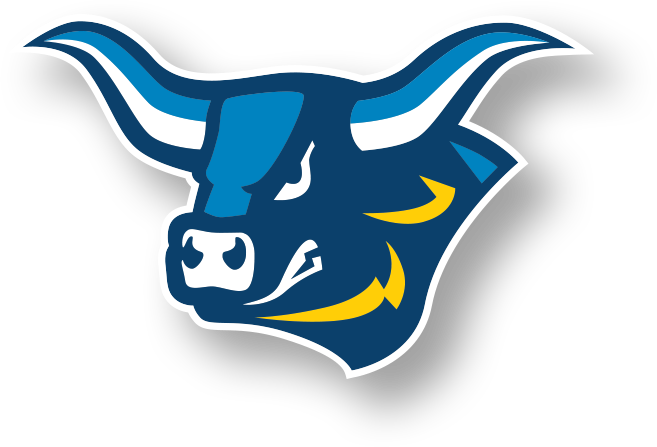
At a glance
In many small college towns, there seems to be an invisible fence between the campus and off-campus businesses. Students tend to stay on campus where their campus ID facilitates access to virtually anything they need.

In many small college towns, there seems to be an invisible fence between the campus and off-campus businesses. Students tend to stay on campus where their campus ID facilitates access to virtually anything they need. Meanwhile, business owners work hard to entice students to patronize local establishments, spend some dollars locally, and get involved in the community. This kind of stalemate is slowly dissolving in Alfred, NY, because of a unique Campus Partner program implemented at Alfred State College in Fall 2007. Now, a year later, the benefits for both students and business owners are showing.
The off-campus Campus Partner program was the pet project of Thomas Massara, executive director of Auxiliary Campus Enterprises and Services (ACES-which provides dining services, bookstores, transportation, vending, and telecommunications services to the College). A long-standing member of the local business association, Massara heard frequently from merchants in Alfred about the desire to bring more students into their establishments.
"It's a simple equation for the shop owners," Massara said. "Our student population dwarfs that of the town residents, so when classes are in session, businesses must maximize their traffic to remain healthy."
A complicating factor for Alfred business owners in attracting student business is that many students manage their finances using the Campus Card system. Alfred State College students use two debit accounts accessible from their Campus Card, which looks much like the traditional college picture ID card. One debit account is dedicated to the meal plan and is limited to campus use. The other debit account, called a Campus Spending Account or CSA, is much more flexible. CSA dollars can be used at the bookstore to purchase required books and supplies, to pay various campus fees, purchase a snack from a vending machine, or enjoy a late-night sandwich when meal plan dollars are not available. Even though cash may be a scarce commodity for many students, spending money may still be available in another form.
"At ACES, we are committed to improving the Alfred experience for our students, and we wanted to find a way to include local businesses in that experience," Massara said.
So, when a company named Blackboard came calling on Massara in his Central Dining Hall office, he listened. ACES was already using a competitor's system to manage the point of sale terminals in its operations. Students pay for their meals on campus with a quick swipe of their Campus Card. The system works well and data about buying patterns is useful to the corporation in its mission to provide better service to the students of Alfred State. Blackboard offered a module that would allow off-campus merchants to dial into and access the same funds as ACES campus operations.
Massara believed that adding the Blackboard Community module would fulfill a long-standing desire by increasing the options available to students while providing a mechanism for students to patronize local businesses.
"The Community module gave us the exact bridge to the local merchants that we needed for so long," Massara said. "We provide great offerings on campus, but sometimes students want a change of venue, even when they don't have a lot of cash on hand. This program gives the students access to their debit accounts at Campus Partner locations."
In the summer of 2007, Blackboard contacted local merchants to sign them up for the program. Participation requires the installation of a modem so that accounts can be verified and accessed from the Blackboard server and the ACES server that maintains the student database. Student accounts are accessed on a real-time basis, thereby assuring merchants of the availability of funds.
Initially, five merchants joined the program: Short's, Wellsville; Alfred Pharmacy; The Collegiate; The Terra Cotta Café; and Little Sicily. During the summer break 2008, Sonora's Mexican Café joined the program.
Partners establish a daily settlement time and the daily sales totals are transferred electronically to their bank account from the ACES bank account each business day. The Partner pays a fee to Blackboard for each successful transaction which is also shared with ACES. In return, ACES bears the loss from any bad debt generated by the program resulting from student default.
Each partner is responsible for marketing its participation in the program. ACES supports their efforts by educating students and parents about the program during Orientation and then throughout the year on the company's Web portal. Word of mouth among the students is the most powerful marketing device for the program.
By the end of the fall 2007 semester, the program resulted in 4,091 transactions distributed among all the participating merchants. Those transactions had infused a total of $55,226 into the local economy. With only one full month of Fall 2008 data available, sales and transactions have already exceeded the fall semester total from last year, and Massara expects the trend to accelerate.
Students, local business owners, and ACES are very pleased with the impact of the program.
"The Campus Partner program has had a tremendous positive impact on our business," said Deb Quinn, manager for Short's. "We've gotten to know the kids on a first name basis and it's great to have them around. The program is easy and flexible and we've created special meals once a semester to let them know how much their business means to us."
According to Quinn, Short's Campus Card transactions have easily doubled over last year and they anticipate the rapid growth to continue. Short's is the only merchant location where students can use their CSA account to buy fuel.
"It's great to have some variety," said Josh Pollock, architecture technology major from Bethel, CT. Pollock has used his card at The Terra Cotta Café, Little Sicily, and the Alfred Pharmacy.
Others have not been so eager to use the new services.
"I would use it if I went downtown, but I have everything I need right here on campus," said Lincoln Riscilli, architecture technology major from West Field.
About ACES
Auxiliary Campus Enterprises & Services (ACES) is a not for profit corporation that supports the mission of Alfred State College. ACES is located on campus and provides dining services, campus bookstore, transportation, vending, and laundry services to our customers.
